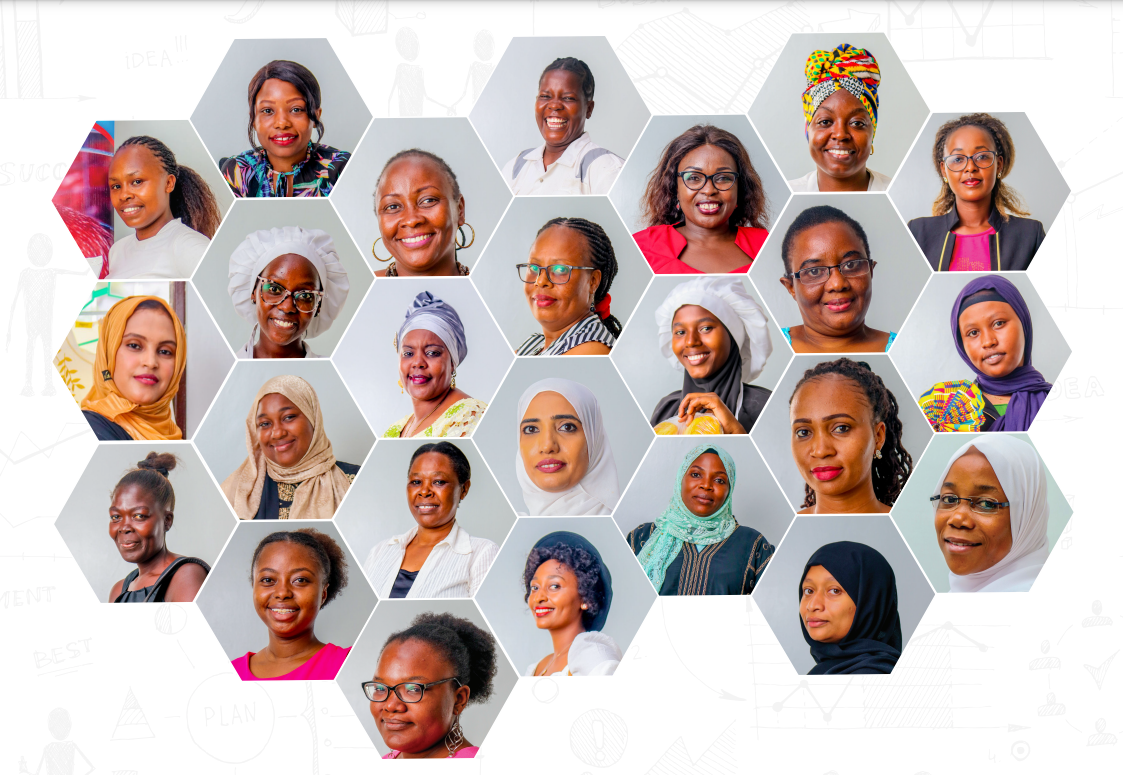How the Kenyan Red Cross and French Red Cross are supporting female entrepreneurs in Kenya
"The biggest challenge as a woman entrepreneur is to be taken seriously," says Kenyan businesswoman, Fatuma Ali Bakari.

Mombasa, Kenya - In 2023, the French Red Cross and the Kenya Red Cross Society founded the Women Social Entrepreneurship Institute (WSEI), a programme designed to support women entrepreneurs in Kenya’s Coastal region. This initiative aims to empower cohorts of women who are informal entrepreneurs to become business leaders in their communities, fostering stronger businesses and economic resilience.
"Many people might be surprised to learn that the Red Cross works on entrepreneurship," says Camille Loiseau, International Innovation Officer at the French Red Cross, "Some may ask us why we are working on promoting entrepreneurship, but projects like the Women Social Entrepreneurship Institute greatly benefit from our social focus and holistic approach. Supporting women to take control of their lives and improve their material prospects is fundamentally aligned with our mission to build stronger, more resilient communities."
The Coastal region, which includes Lamu, Tana River, Kilifi, Mombasa, Taita Taveta, and Kwale, is amongst the regions in Kenya with the lowest income. Despite Mombasa being the second-largest city in Kenya and the biggest commerce hub in East Africa, 62% of people in the Coastal region live below the poverty line. Meanwhile, according to the Kenya National Adolescents and Youth Survey, youth unemployment is at 44%.
In this setting, being an entrepreneur in the informal economy has become a vital resource, particularly for women. Yet, contrary to Nairobi, the Coastal region lacks support structures for small businesses, with local authorities focusing more on developing vocational skills rather than sustaining informal or "survival" entrepreneurs. The Red Cross WSEI is a first step in filling this gap by supporting women in sustaining and developing their small businesses.
"Money is first and foremost a means of autonomy and emancipation. It's very important to show women the importance of earning enough to live on their own" says Jane Njeri Chege, a participant in the first cohort of the Women Social Entrepreneurship Institute programme.
Launched in January 2023 with support from the French Ministry of Foreign Affairs and Europe, the WSEI was implemented by the International Innovation team of the French Red Cross and the Innovation team of the Kenya Red Cross Society. The approach was inspired by the methodologies of "21", the Social Innovation Accelerator of the French Red Cross.
During the first pilot cohort, 25 women entrepreneurs from Mombasa accessed a “safe innovation space” to enhance their business skills. The programme offered a comprehensive learning approach and combined hard skills, socio-emotional skills, and access to an extensive support network.
" I always wanted to be an entrepreneur. But I had to acquire a certain number of new skills. I would say that entrepreneurship is 30% natural and 70% acquired " says Fatuma Ali Bakari, another WSEI participant.
The programme was conducted in the IOME.254 Innovation Labs of the Kenya Red Cross, providing a "safe innovation space" equipped with computers, printers, machinery for building prototypes, and an internet connection. Every Tuesday, weekly training sessions allowed women entrepreneurs to develop, test, and learn new skills and tools. Moreover, each woman received individual support from a coach for eight months as well as a grant of 60,000 KES (approximately 400 euros).
The Red Cross’ holistic approach, which includes addressing social issues such as violence against women as well as practical barriers, sets it apart from other entrepreneurial support programmes. The women-only environment of the WSEI provided a safe space to discuss professional and personal challenges openly, including important conversations on discrimination and sexist violence.
By the end of the programme, participants had doubled their average income, from 69,000 KES to 141,000 KES. They also all registered their businesses properly, with 80% compliance with tax regulations. The fear of failure among participants also dropped from 63% to 40%.
The WSEI not only enabled the participants as entrepreneurs but also as leaders in their communities, creating a ripple effect of positive change. Each woman supported reached on average 14 other budding entrepreneurs with what they have learned themselves.
"There are now more women setting up businesses in Kenya than men," celebrates Hellen Mwangua Kalaghe, another participating entrepreneur.

Strong from this success, the French and Kenyan partners wish for a second edition of the programme designed to reach more women in remote and harder-to-reach communities. Part of the funding for this second edition has already been secured from the International Chamber of Commerce. However, more funds are still needed.
Through the Women Social Entrepreneurship Institute, the French Red Cross and the Kenya Red Cross Society are not only fostering economic growth in the region but are also showcasing how holistic support and innovative thinking can transform lives and entire communities.
Basic information
Activity name
Women Social Entrepreneurship Institute
Country
Kenya
Duration
January 2023 - ongoing
Partners
French Red Cross and the Kenya Red Cross Society

